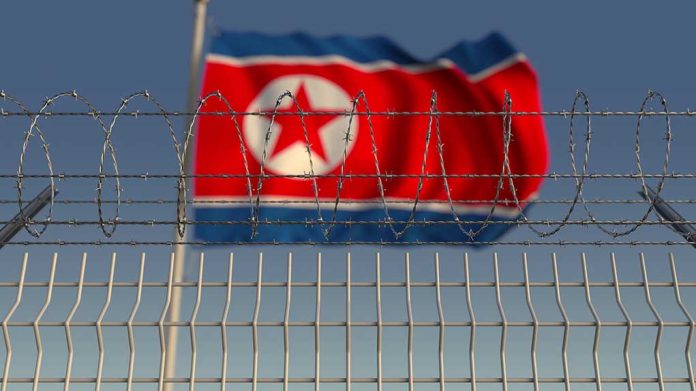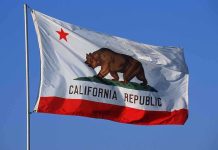
North Korean defectors revealed harrowing accounts of public executions for watching foreign media, as they begged the United Nations to hold dictator Kim Jong Un accountable for unimaginable human rights violations including forced repatriation, systematic starvation, and using citizens as unwitting pawns in foreign wars.
Key Takeaways
- North Korean defectors Eunju Kim and Gyuri Kang delivered shocking testimony to the UN, including accounts of public executions for watching South Korean TV and widespread government-caused starvation
- Both defectors escaped North Korea under dire circumstances—Kim fled starvation twice after being forcibly repatriated, while Kang escaped during COVID when three friends were executed for distributing South Korean dramas
- UN special investigator Elizabeth Salmón reported that North Korea’s isolation has intensified since 2020, with stricter laws, increased public executions, and exploitation of citizens sent abroad
- North Korea’s UN Ambassador dismissed the testimonies as “a burlesque of intrigue and fabrication” while the defectors urged the International Criminal Court to investigate the regime’s crimes
Defectors Share Horrific Accounts of Life Under Kim Jong Un
Two North Korean defectors delivered powerful testimonies at the United Nations, revealing the brutal reality of life under Kim Jong Un’s oppressive regime. Eunju Kim escaped North Korea in 1999 due to severe famine, only to be sold in China and subsequently deported back. After enduring further hardship, she managed to escape again. Her counterpart, Gyuri Kang, fled during the COVID-19 pandemic after witnessing the ruthless persecution of those who dared to consume or distribute foreign media, especially South Korean entertainment.
“Three of my friends were executed, two of them in public for distributing South Korean dramas,” said Gyuri Kang, North Korean defector.
The testimonies highlighted the regime’s extreme measures to control information and maintain power. Kang described how North Koreans found South Korean dramas and movies “so refreshing and more credible than North Korea state propaganda,” which led the government to implement brutal punishments including public executions for those caught watching or sharing such content. Both defectors urged the international community to take decisive action against the North Korean leader, calling for investigations by the International Criminal Court.
Worsening Conditions and Exploitation of North Koreans
UN special investigator Elizabeth Salmón reported that human rights conditions in North Korea have dramatically deteriorated since the country closed its borders during the COVID-19 pandemic in 2020. New, stricter laws have been implemented to intensify control over the population, including harsher punishments and increased surveillance. The regime’s isolationist policies have worsened food insecurity and economic hardship while limiting humanitarian aid that could alleviate suffering.
“For over five years, people in the DPRK have been living in absolute isolation. The government’s excessive measure, placed under the COVID-19 pandemic, worsened an already dire human rights situation in the country,” said Elizabeth Salmon, UN special investigator.
Particularly concerning are reports that North Korea has been sending troops to support Russia in Ukraine under deplorable conditions. Eunju Kim described this practice as human trafficking, stating that many soldiers are sent abroad without knowing their destination or purpose. This exploitation extends to North Korean workers sent overseas to generate foreign currency for the regime’s nuclear and military programs, effectively using forced labor to fund weapons development that threatens global security.
Calls for International Action Amid North Korean Denials
The testimonies at the UN General Assembly meeting, the first of its kind following a resolution to address North Korea’s human rights abuses, drew strong reactions from the international community. Sean Chung, representing a coalition of civil society organizations, called for an end to forced repatriations and urged targeted sanctions against North Korean officials responsible for atrocities. He also proposed creating an independent expert body to analyze how the regime’s human rights violations connect to its weapons development.
“Silence is complicity. Stand firm against the regime’s systematic atrocities,” said urged Eunju Kim, North Korean defector.
Predictably, North Korea’s UN Ambassador Kim Song dismissed the meeting as “a burlesque of intrigue and fabrication” orchestrated by Western powers. He accused the defectors of being traitors who had fabricated their stories and claimed that the West was guilty of far worse human rights abuses. Despite these denials, experts including Greg Scarlatoiu emphasized that “North Korea is no longer just a Korean Peninsula threat” but a global one, exporting instability and violence through its human rights violations and increasingly aggressive military posture.
South Korean Ambassador Hwang Joon-kook reinforced this point by stressing the direct connection between North Korea’s systematic human rights abuses and its nuclear weapons program, highlighting how the regime’s repression of its people enables its threatening military development. With defectors bravely speaking truth to power, the international community faces mounting pressure to take concrete action against one of the world’s most repressive regimes.






